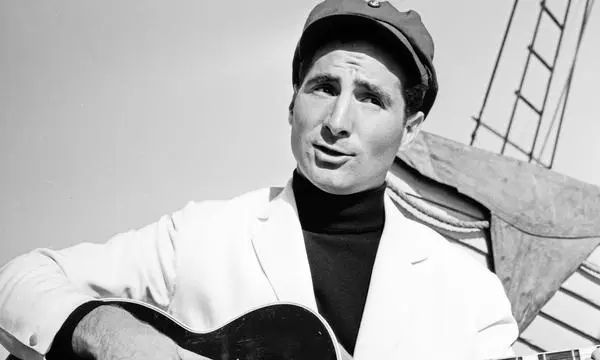She, Marilyn Monroe true, that of Pier Paolo Pasolini’s creative spirit

By Albert Vataj
There are no more words to add to the legend that was conceived on it. And yet, there is always something to be said when through poetry we try to understand the spirit that suffered beyond glamor and icon. Pier Paolo Pasolini, with his slaughter sensitivity and his famous sadness to the invisible, wrote for Marilyn Monroe a poem that is not just homage, but a discovery – a confession of what she wanted to be, but that no one heard enough.
In its rows does not appear the screen diva, nor the magical smile of the ad. There, an inner marilyn, anxious, persecuted by the memories of an abandoned childhood and wounded by a world that demanded only beauty but never interested in its human fragility. It was not just a film figure, but a being that never managed to overcome the dazzling light of the public itself.
Basically, she was a child who never recognized the warmth, a woman who had to build herself on piles of insecurity and deceit. Psychoanalysis was not enough, fame did not even affect its essence. Success was a mask that was increasingly aggravated on his face. It was a soul that always lived in a permanent state of separation – between what it was and what it should have been for others.
And on that quiet August night of 1962, when 47 Nembutal pills and a heavy dose of barbiturates finally closed the inner gate of suffering, it probably did not require death but tranquility. Perhaps he wanted to be heard, finally, from a silence that asked for nothing.
Pasolini’s poetry does not answer it, but it gives us the permission to approach – at least for a moment – with what Marilyn was really: a human being that more than anything wanted to feel loving, not admired. And perhaps only those who have known loneliness and the deep wounds of the soul can understand what happened in the late hours of that night, the solitude that even the brightest screen light cannot extinguish.
Perhaps, in this deep rereading, we will know it better. Not as a star. But as a man.
Maybe!
She, marilyn
by Pier Paolo Pasolini
From the ancient and future world
only beauty remained,
and you, little sister and poor,
What was running after her older brothers,
laughing and wept with them,
to imitate them.
Little sister
You had humbly dressed that beauty,
and your soul, as of a fall of simple people,
never knew he had it,
because otherwise it would not have been beauty.
The world taught you,
And your beauty became her.
Only the beauty remained
from the scary old world and the even more scary of the future,
And you carry with you like a submissive smile.
Obedience requires many tears swallowed,
much surrender to others,
Many fun views that beg for mercy.
So they got your beauty.
Disappeared as a gold particle.
By the ancient stupid world
and from the wild world of the future
remained a beauty
that was not ashamed to allude to the little chest
of a little sister,
for the naked belly so easily.
And for that, it was beautiful,
the same as the sweet girls of your world,
The girls of traders who won beauty contests in Miami or London.
Disappeared like a golden dove.
The world learned that,
And so your beauty was no longer yours.
But you were still a baby,
stupid like antiquity,
cruel as the future,
and between you and your beauty, already occupied by power,
All the folly and cruelty of the present came to light.
Always carried with him as a smile through tears,
improper through inactivity,
improper through obedience.
Disappeared like a white golden dove.
Your beauty survived from the ancient world,
desired by the next world,
occupied by the current world,
became a deadly evil.
Now the older brothers finally come back,
stop for a moment their cursed games,
emerge from their wild distraction,
And they ask themselves:
“Could Marilyn had shown us,
Little Marilyn? ”
Now you are the one who is no longer worth anything,
Woe to you, with your smile,
You are the first beyond the world’s doors,
abandoned to her fate of death.
In this shocking poem, Pasolini does not simply write about Marilyn Monroe. He speaks of a deep wound of the modern world – how beauty, innocence and simple spirit are used, used and then abandoned.
Pasolini approaches Marilyn not as a myth, nor as sex symbol, but as a « little sister », a fragile and unintentional creature that holds the weight of a world eager to swallow beauty. He sees in her man before he is an icon. Her soul did not know she was beautiful – and it was that ignorance that she turned it into such.
Beauty, for Pasolini, is not wealth or strength, but something that can risk destroying the man who possesses him, if he falls into the hands of a world that has no more sensitivity, no mercy.
The figure of « obedient smile » is one of the most painful. It summarizes all the forced inactivity that has been imposed on Marilyn. It is the smile of those who dare not be themselves because they have turned into mirrors of the projections of others. Beauty, from the beginning is a gift, becomes a curse, into « a deadly evil ».
Pasolini sees her death not as an act of madness, but as a tragic conclusion of a social process. Marilyn, with all the fragility and lack of awareness of the size of her image, remained « the first beyond the doors of the world ». Abandoned not only by the people, but also by the era he used as a symbol, and then forgot.
Poetry ends with a question that sounds like an existential sigh:
« Could it show us the way, little Marilyn? »
Perhaps she had no time, she had no power, but in her innocence that could not be protected by the world, lies the silent signal of another path: the path of the fragile, beautiful, honest man – that can save us from the cruelty of the present if we know how to hear.





